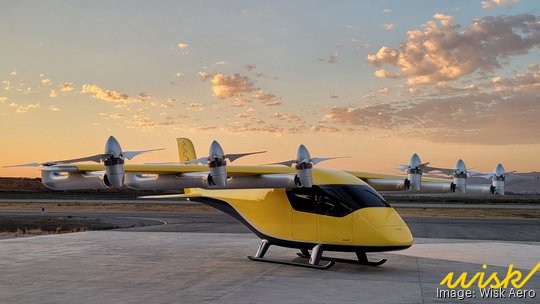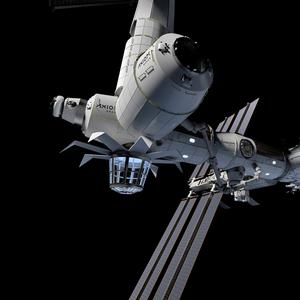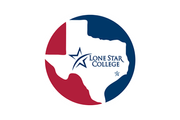
It’s a bird, it’s a plane, … it’s an autonomous air taxi. California-based Wisk Aero, a subsidiary of aviation giant The Boeing Co. (NYSE: BA), took an early step toward bringing flying taxis to the Houston region this week.
Wisk signed a partnership with the city of Sugar Land that will see the Sugar Land Regional Airport host Wisk’s first vertiport infrastructure in the Houston area. A company spokesperson told the Houston Business Journal that Wisk expects to be in service by the end of the decade,
The company uses autonomous electric vertical takeoff and landing, or eVTOL, aircraft in its fleet. Wisk completed a demonstration flight of its flights in Los Angeles last year.
“The Greater Houston area is experiencing some of the highest population growth in the country, which calls for new and efficient ways to move across the region,” said Wisk CEO Brian Yutko. “Sugar Land’s strategic location within the Greater Houston region, and its forward-thinking city leadership, make it an ideal partner for us and one that is uniquely positioned as an early leader in the launch of air taxi services.”
Elizabeth Rosenbaum, director of aviation at the Sugar Land Regional Airport, told the Houston Business Journal via email that the partnership had not yet been discussed at a city council meeting.
Rosenbaum said the next priorities for the city in the partnership would be discussing infrastructure needs, pathways for operations, flight procedures and grant opportunities. Community outreach is also on the city’s to-do list, Rosenbaum said.
Wisk’s new sixth-generation air taxi, the model anticipated to fly in Houston skies, will be operated autonomously. Without a human pilot in the vehicle, Wisk will operate the taxis using a combination of autopilot technology, decision-making software, and ground operators who can intervene during a flight. The aircraft seats four with room for carry-on luggage.
Rosenbaum told the HBJ that discussions over safety and liability insurance were yet to take place but would happen in the future. Meanwhile, Wisk said in a statement to the HBJ that it plans to ensure getting on its aircraft is as safe as getting on an airplane.
“The Federal Aviation Association ultimately determines the appropriate safety standards, and we are committed to meeting, and even exceeding, the requirements set by the FAA,” the company said in its statement.
Wisk confirmed to the HBJ that it is undergoing the FAA’s operating certification process, which it needs to reach its projected timeline. Last month, the FAA said it would be combining several parts of its process to enable prospective operators to hit initial certification status.
The company plans to have a network of routes that can interconnect various destinations within the Houston area. Wisk said its destinations are not final yet but suggested potential locations in downtown Houston or the Houston Airport System, which includes George Bush Intercontinental Airport and William P. Hobby Airport.
Wisk anticipated that the construction of a 20-vertiport network could create more than 2,100 jobs, and the annual operation of that network would create more than 940 jobs annually.
Regions across the U.S. are beginning to look at flying taxis, including Texas. Boeing expanded its presence at Port San Antonio last December, and the city is working on more plans to attract electric air travel.
Meanwhile, Houston has seen plenty of development in autonomous travel and shipping on the ground. Companies such as California-based Kodiak Robotics and Pittsburgh-based Aurora Innovation Inc. (Nasdaq: AUR) have established infrastructure for autonomous trucks to hit the Interstate 45 shipping route between Houston and Dallas, with Kodiak anticipating driverless trucks could hit the road by next year.
It hasn’t always been smooth traveling, however. Houston was the latest city to welcome the General Motors-backed startup Cruise LLC, which operates an autonomous taxi service. However, following an incident in California, the company’s operating license in that state was suspended and its CEO and co-founder Kyle Vogt parted ways with the company. Cruise also cut over 500 jobs.





